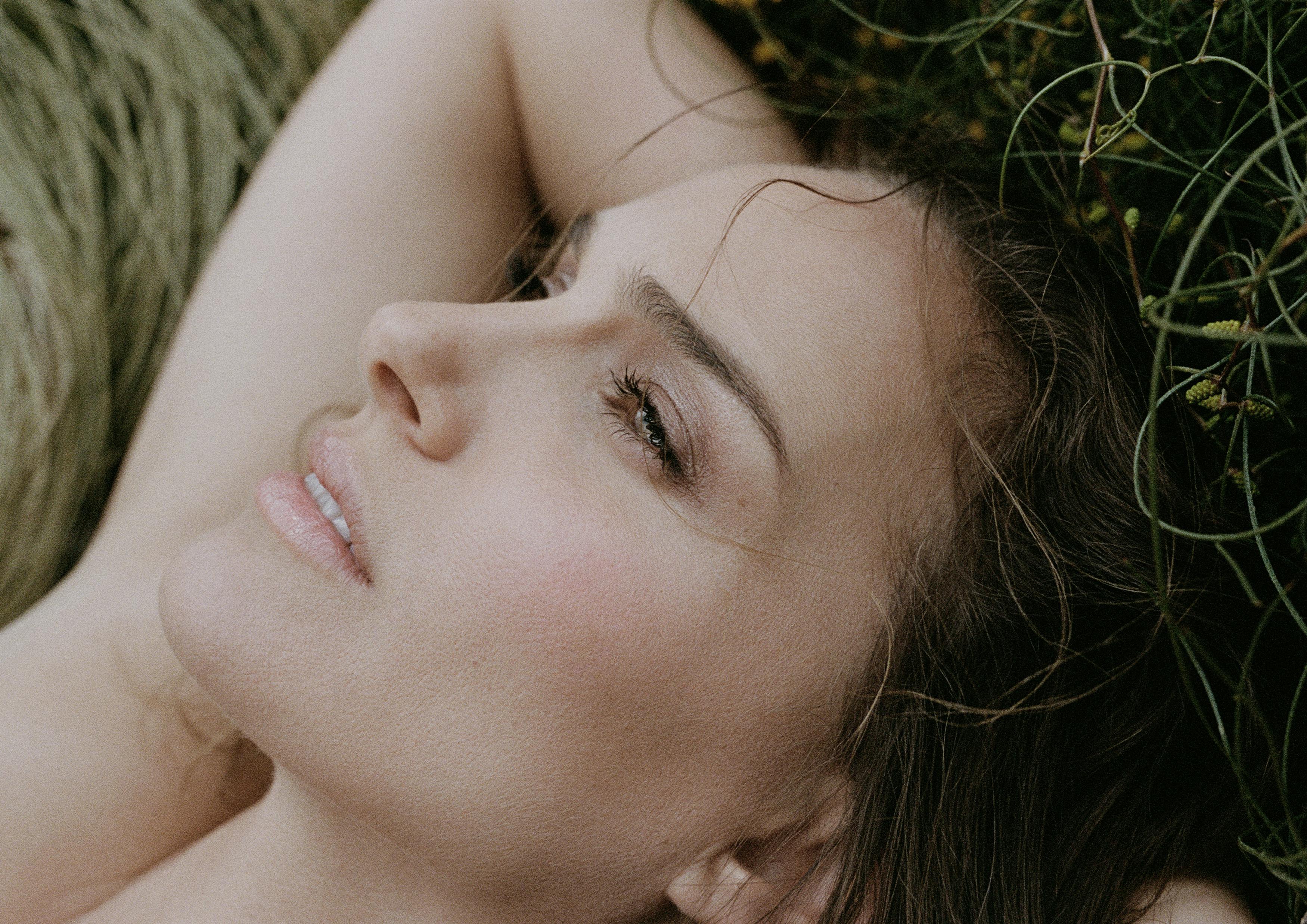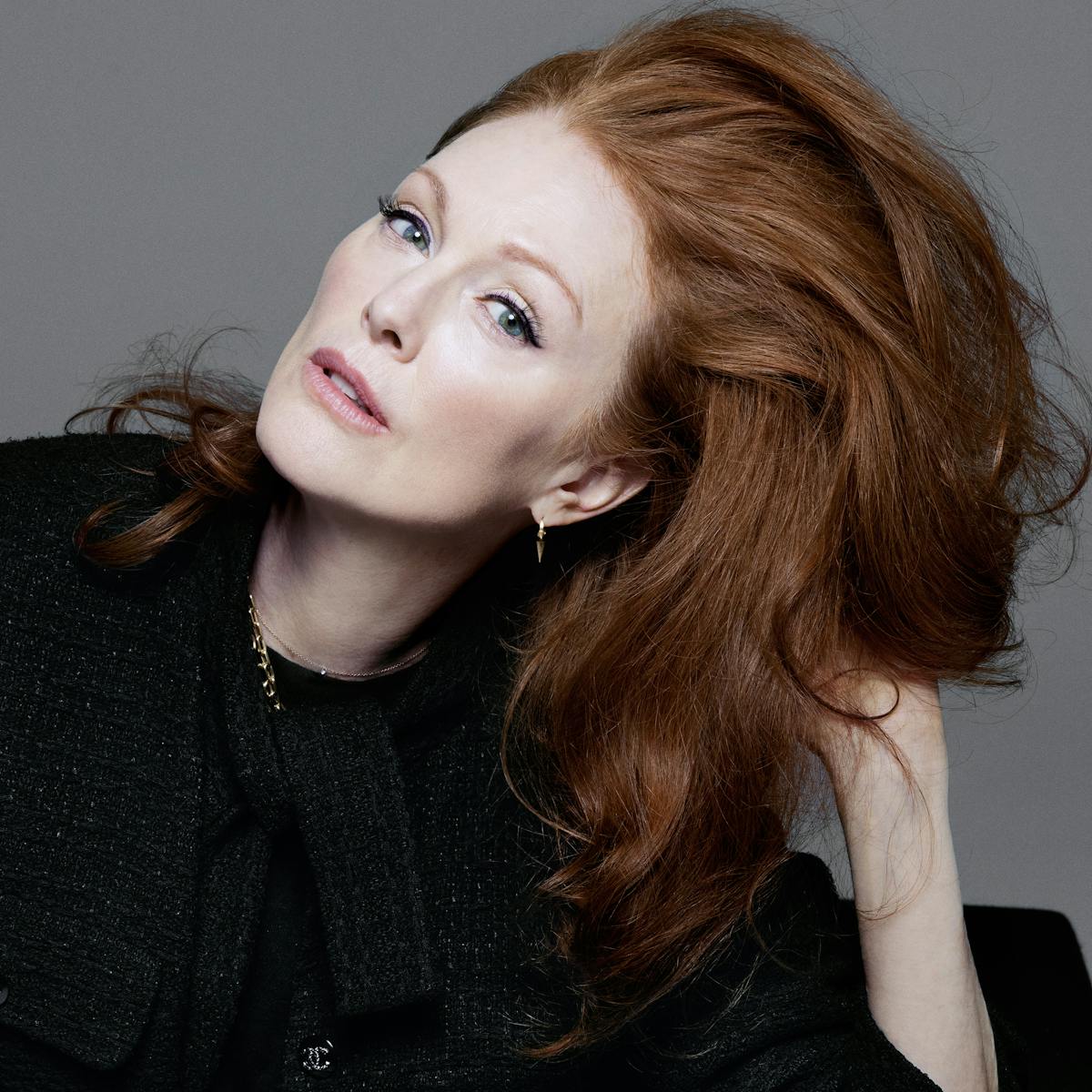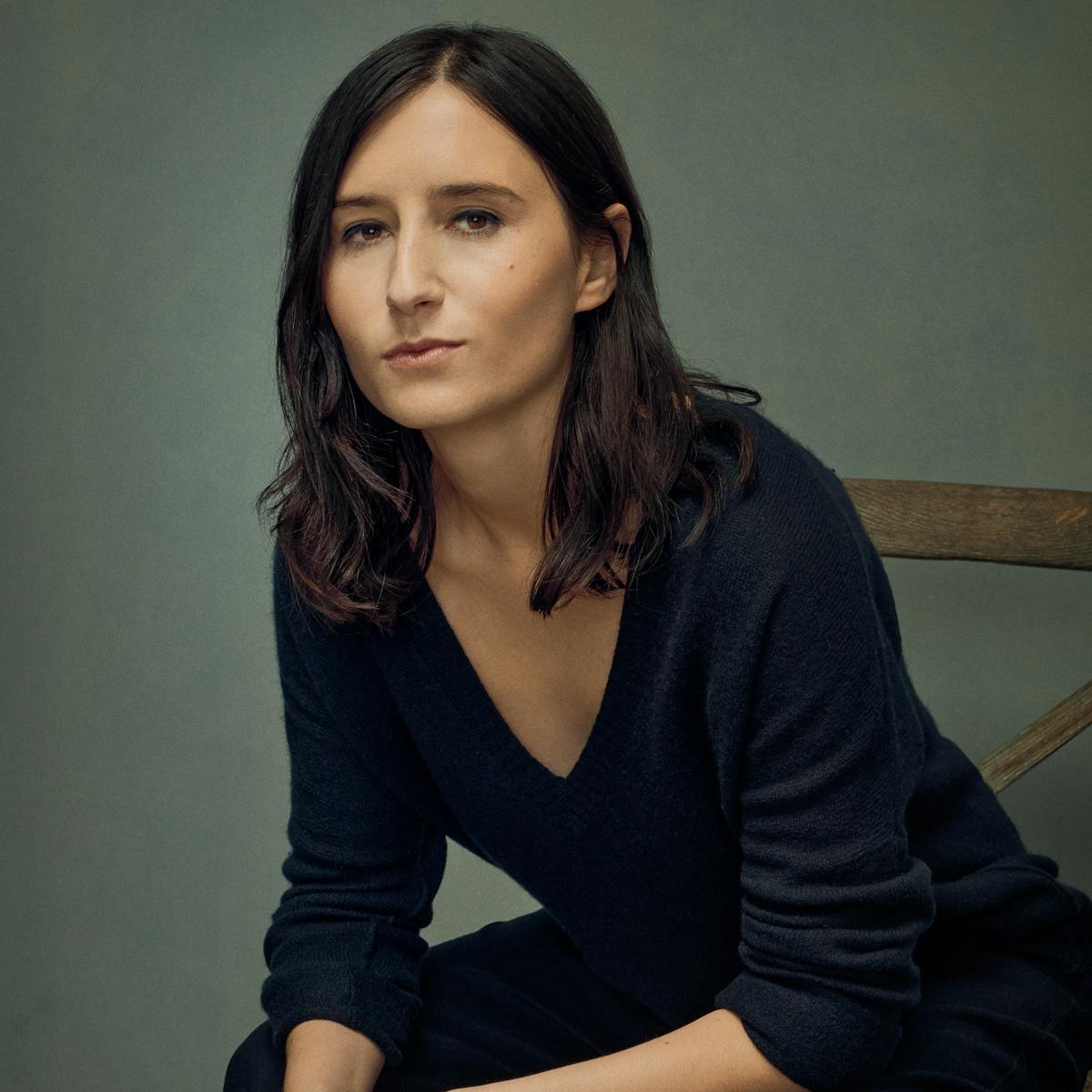The Oscar winner considers her own reflection as an actor in Todd Haynes’s melodrama, May December.
There’s a scene about halfway through May December, Todd Haynes’s new film about an actor meticulously studying her next subject, that will immediately join the ranks of the most tense moments on film ever. For three and a half relentless minutes, two acting virtuosos, Natalie Portman and Julianne Moore, do a dance that is intimate, seductive, and disturbing. The scene may seem like a straightforward lesson in makeup application, but for these characters, the layers of concealer stand in as coverage for life’s blemishes and cracks.
On the surface, May December tells the story of Elizabeth Berry (Portman), a moderately successful TV star researching what she hopes will be a career-changing film role. That role is Gracie Atherton-Yoo (Moore), a woman who became tabloid fodder after embarking on a relationship with Joe (Charles Melton) when he was in middle school and she was nearly three times his age. After serving several years in prison, Gracie is married to the now-36-year-old Joe, living in Savannah, Georgia, and raising their twins, who are high school seniors. Gracie and Joe are eager for Elizabeth to cast a compassionate light on their story, and invite her into their seemingly idyllic lives.
But scratch the surface and it’s a film about so much more — the narratives people tell themselves, the identities easily latched onto, the danger of assumptions about right versus wrong. What begins with Gracie throwing a barbecue to welcome Elizabeth (which, through Haynes’s lens, becomes sardonically comedic) morphs into an eerie psychodrama where lines between the two women are blurred and everything from their makeup to their morality is called into question by those within the film, not to mention those watching.
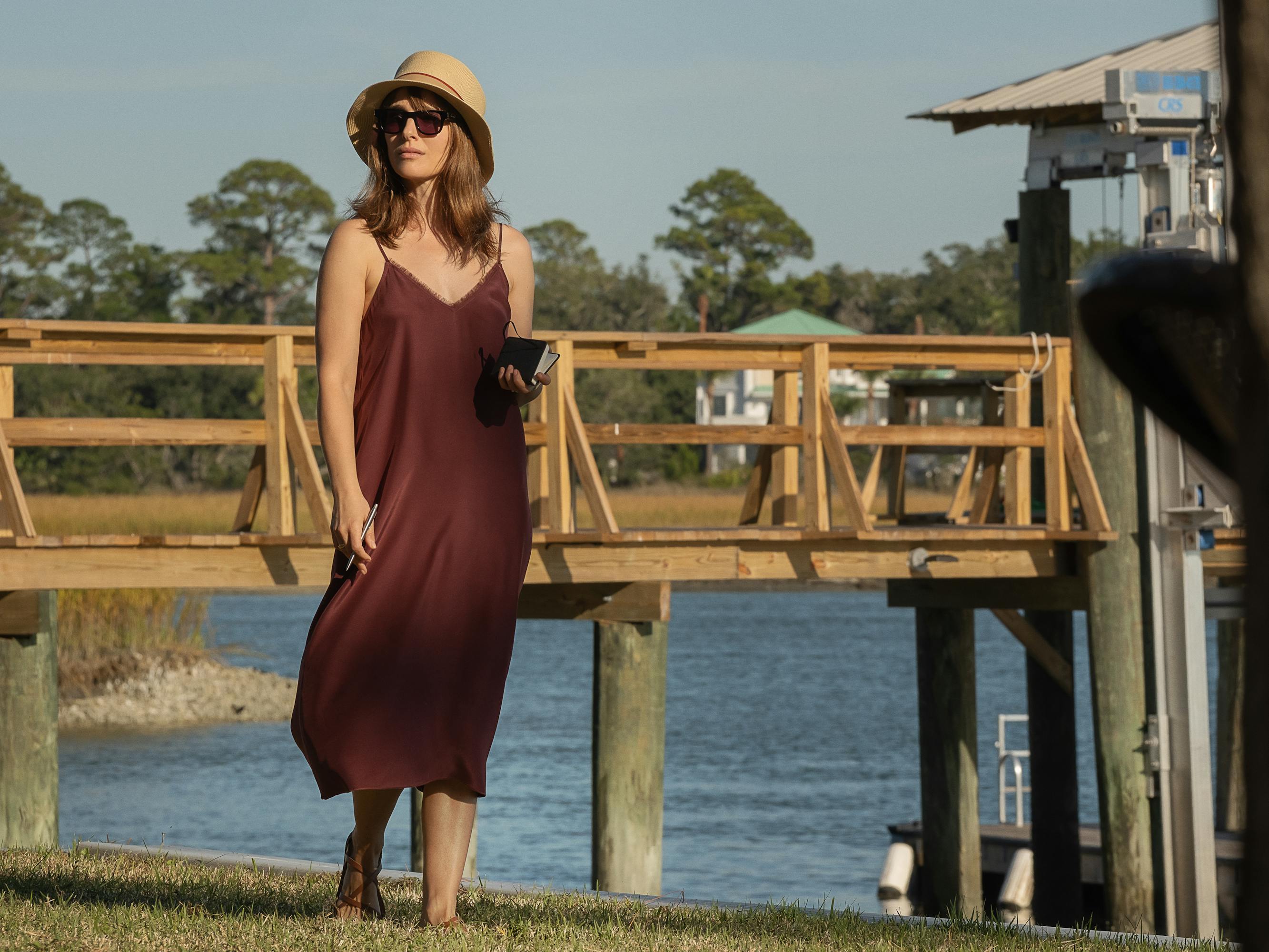
Natalie Portman
Photograph by François Duhamel.
“You have a set of expectations going in that [Portman’s] character, Elizabeth, is going to be our proxy, our way into this story, and we’re going to be able to trust her,” Haynes says. “But things start to shift. You start to question her motives and her own blind spots as a person, as an actor, the presumptions that she makes, and the unique willfulness that is evident in both of these women becomes visible” — if only to the audience. In the makeup application scene, Portman and Moore are staring directly into a bathroom mirror, not accurately seeing what’s reflecting back. It’s one of several scenes in May December involving mirrors and reflections, which is perhaps why Haynes has said this film is about “our colossal refusal to look at ourselves.”
While Portman stars in the film, she was also part of its genesis. Early in the pandemic, she was sent new writer Samy Burch’s script for May December and was intrigued by the role of Elizabeth and the story as a whole. “I read it and was like, Oh my goodness, this is such an incredible character and such a wild story,” Portman says.
Portman, who’d worked as a producer on films from Eating Animals, a documentary based on Jonathan Safran Foer’s memoir-investigation, to Pride and Prejudice and Zombies, knew that May December would be the perfect first project for MountainA, the production company she co-founded with Sophie Mas in 2021. She and Mas knew the film necessitated a great filmmaker and immediately thought of Haynes.
I read it and was like, Oh my goodness, this is such an incredible character and such a wild story.
Natalie Portman
Portman and Haynes had been longing to collaborate on a project for years, but the timing hadn’t worked out. So, she sent the screenplay over to Haynes, hoping he would connect to it like she did. Haynes was “immediately captivated” upon reading May December, as he told the crowd at the film’s Cannes Film Festival premiere after the film received an eight-minute standing ovation. He’d signed on instantly.
As for the actor who would play opposite Portman? With Haynes now onboard, Portman didn’t have to ponder that question for too long. As the director recalls, “I remember saying to Natalie, ‘What do you think about Julie for the role of Gracie?’ Natalie was like, ‘Do you think she’ll do it?’” The two Oscar winners barely knew each other outside of industry functions and, as Haynes says, “It was an amazing opportunity just to have these two incredible women share a film like this.” The pairing turned out to be magical both on- and offscreen. Moore calls Portman “just a dream, as an actor and a person.” Portman calls Moore “extraordinary” and adds that the makeup scene was “absolutely a highlight of [her] life.”
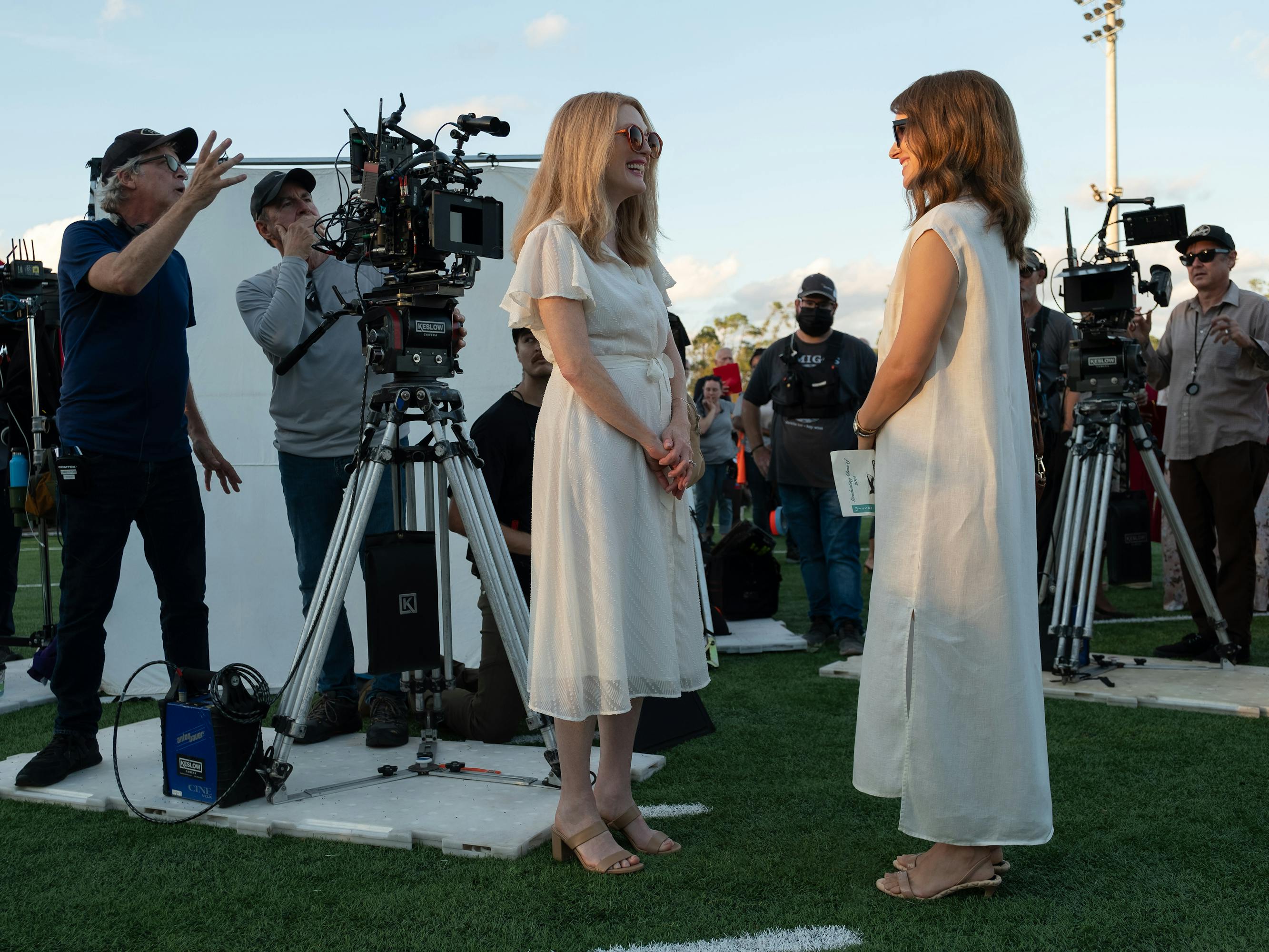
Todd Haynes, Julianne Moore, and Natalie Portman
Photograph by François Duhamel.
Though Portman has played everything from a superhero (Thor: Love and Thunder) to a pop star (Vox Lux) to a planetary queen (Star Wars: Episode I – The Phantom Menace), May December offered her a novel part: the role of an actress. “I was excited to explore an actress, and of course, it’s something I have insight into by being one myself for a long time,” Portman says. “And it’s interesting to me — the kind of performance that people create in their own lives that is akin to acting. There are so many layers of performance that it’s just wild to consider, especially when you’re also considering breaking out of societal norms in terms of behavior and how that kind of criminality intersects with performance or inability to perform.”
In playing an actor who is immersing herself in research for a role, Portman drew on her own history of getting in character. To portray First Lady Jacqueline Kennedy Onassis in Pablo Larraín’s Jackie, Portman dove into studying interviews, clips, and her subject’s polished accent. For her Academy Award-winning turn in Black Swan, Portman spent hours every day for a year studying with a ballerina from the New York City Ballet. “Playing real people in the past, I had to study vocal and movement patterns,” she says. “So to have all those be things Elizabeth pays attention to when she’s studying Gracie and all the research materials — I’ve been doing research for this my whole life.”
On the quick, 23-day shoot in Savannah, Georgia, Portman didn’t have the luxury of time she’d had on other films to study the nuances of Moore’s Gracie, like the way her head tilts or how her lisp pops up at random times. As Haynes recalls, it was far from an easy task. “We had no time to rehearse. We had time to have a couple of dinners together,” Haynes says. “Julianne basically had to come up with the character, how she speaks, her cadence, her manner, her look, her presence, with some specificity that could allow Natalie’s Elizabeth to start latching onto aspects of that character and start to incorporate it into her process as an actor who’s studying this woman.”
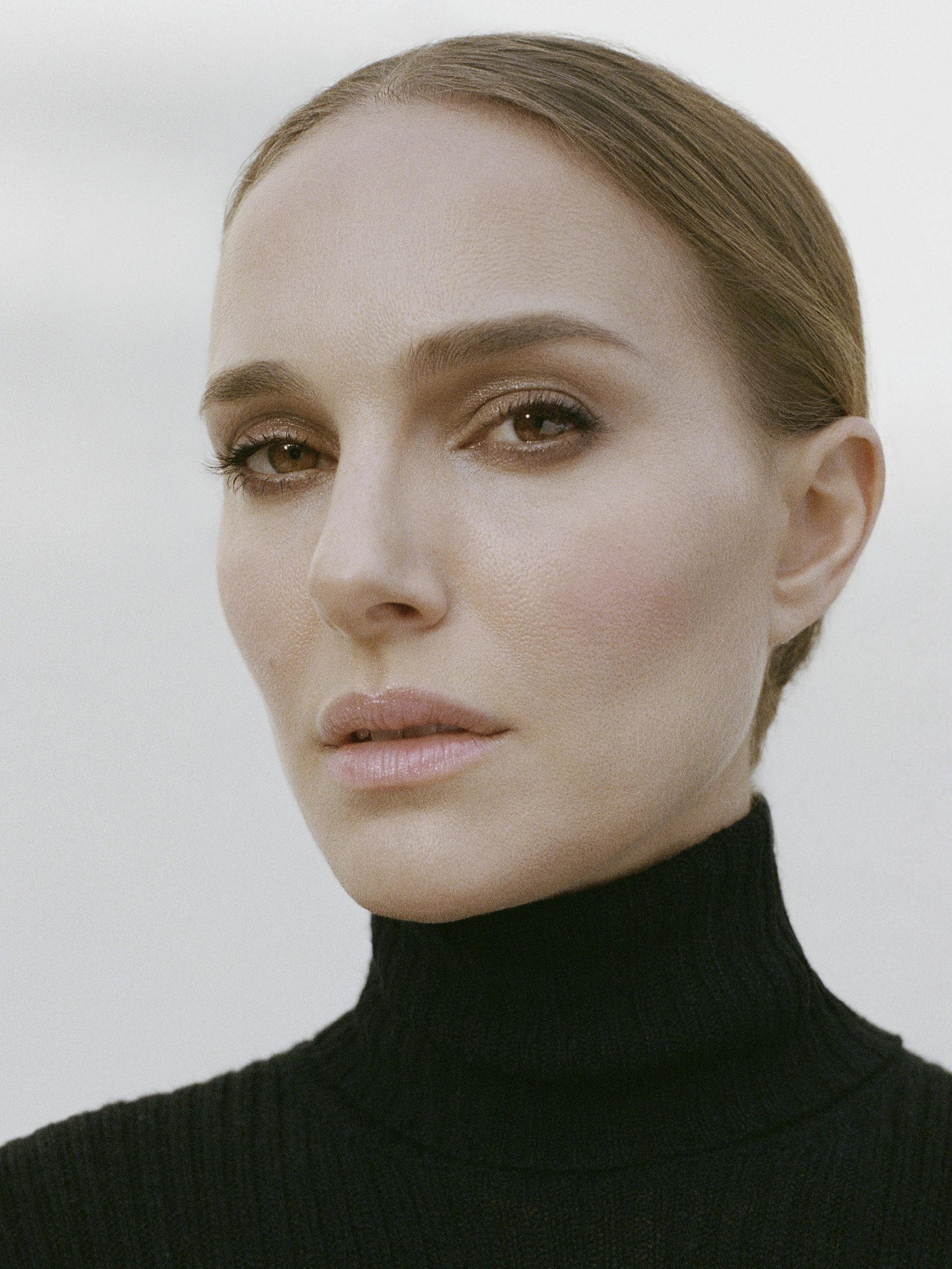
Natalie Portman
Portman didn’t mind the challenge. “It was so magical getting to watch Julianne as part of my character because it’s what I wanted to do anyway,” she told the audience at Cannes. “I had to keep reminding myself I was in the scene also, but luckily I could use it as part of what Elizabeth would do.”
By the time the viewer gets to witness Elizabeth’s full transformation into Gracie, the brilliance of Portman’s detail-filled observations is on full display. It’s a jarringly stark scene: The music abruptly stops, the background fades to black, and with shadows obscuring parts of her face, Portman’s Elizabeth stares directly into the camera and recites a monologue of a letter Gracie had once written to Joe. “If there was one thing that I read in the script that made me know I had to do this movie, it was that scene,” Haynes recalls. “It is just one of the most incredible moments of the film.” Haynes allows the scene to continue for an uncomfortable extra few seconds after Elizabeth concludes her performance, just long enough for her to catch a ragged inhale.
Breathtaking, indeed.
